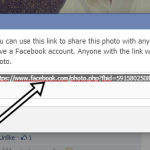ssh-keygen –i [-f input_keyfile ]
ssh-keygen –e [-f input_keyfile ]
ssh-keygen –y [-f input_keyfile ]
ssh-keygen –c [-P passphrase ] [-C comment ] [-f keyfile ]
ssh-keygen –l [-f input_keyfile ]
ssh-keygen –B [-f input_keyfile ]
ssh-keygen –D reader
ssh-keygen –U reader [-f input_keyfile ]
Normally this program generates the key and asks for a file in which to store the private key. The public key is stored in a file with the same name but “.pub” appended. The program also asks for a passphrase. The passphrase may be empty to indicate no passphrase (host keys must have an empty passphrase), or it may be a string of arbitrary length. A passphrase is similar to a password, except it can be a phrase with a series of words, punctuation, numbers, whitespace, or any string of characters you want. Good passphrases are 10-30 characters long, are not simple sentences or otherwise easily guessable (English prose has only 1-2 bits of entropy per character, and provides very bad passphrases), and contain a mix of upper and lowercase letters, numbers, and non-alphanumeric characters. The passphrase can be changed later by using the –p option.
You will be prompted for a location to save the keys, and a passphrase for the keys. This passphrase will protect your private key while it’s stored on the hard drive and be required to use the keys every time you need to login to a key-based system:
Generating public/private rsa key pair. Enter file in which to save the key (/home/b/.ssh/id_rsa): Enter passphrase (empty for no passphrase): Enter same passphrase again: Your identification has been saved in /home/b/.ssh/id_rsa. Your public key has been saved in /home/b/.ssh/id_rsa.pub.
Your public key is now available as .ssh/id_rsa.pub in your home folder.Permission problems with SSH
Also no directory above ~/.ssh can have ‘group’ or ‘other’ write permissions.Note : If you give permissions greater than these you will get errors like “too much permissions”.




